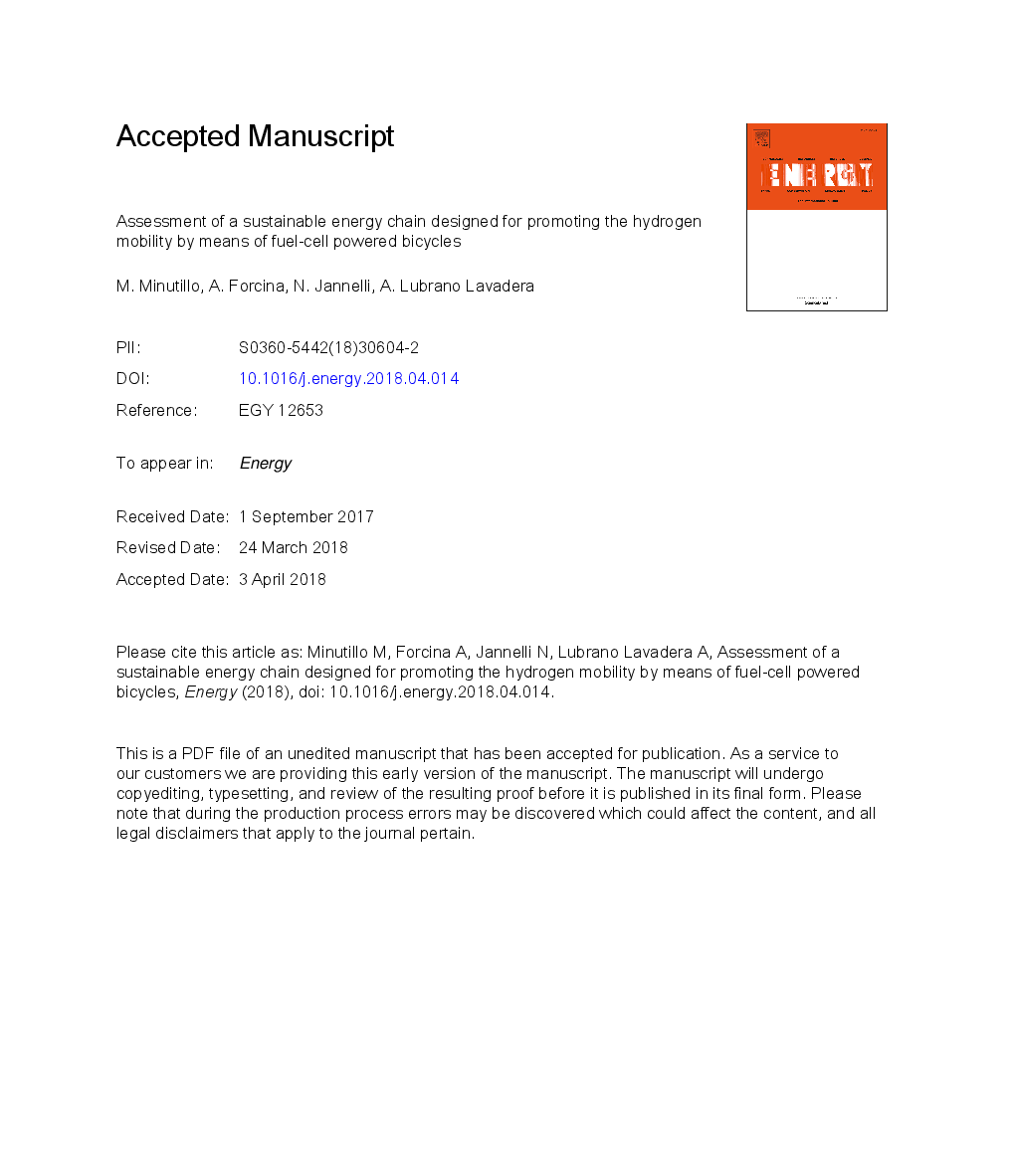ترجمه فارسی عنوان مقاله
ارزیابی یک زنجیره انرژی پایدار طراحی شده برای ارتقاء تحرک هیدروژن با استفاده از دوچرخه های سوخت سلولی
عنوان انگلیسی
Assessment of a sustainable energy chain designed for promoting the hydrogen mobility by means of fuel-cell powered bicycles
| کد مقاله | سال انتشار | تعداد صفحات مقاله انگلیسی |
|---|---|---|
| 149491 | 2018 | 31 صفحه PDF |
منبع

Publisher : Elsevier - Science Direct (الزویر - ساینس دایرکت)
Journal : Energy, Volume 153, 15 June 2018, Pages 200-210
ترجمه کلمات کلیدی
دوچرخه هیدروژن، انرژی تجدید پذیر، سیستم اشتراک دوچرخه، تحرک الکتریکی پایدار،
کلمات کلیدی انگلیسی
Hydrogen bicycle; Renewable energy; Bike-sharing system; Sustainable electric mobility;

